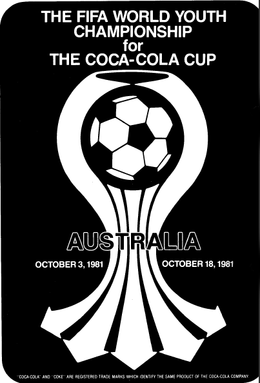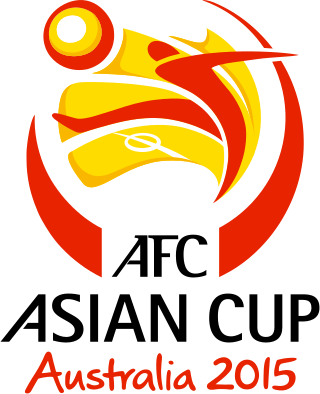
The Melbourne Cricket Ground (MCG), also known locally as The 'G, is an Australian sports stadium located in Yarra Park, Melbourne, Victoria. Founded and managed by the Melbourne Cricket Club, with 95,000 seats and an additional 5,000 capacity in standing room for a total of just over 100,000 it is the largest stadium in the Southern Hemisphere, the 11th largest globally, and the second-largest cricket ground by capacity, after the Narendra Modi Stadium. The MCG is within walking distance of the city centre and is served by Richmond and Jolimont railway stations, as well as the route 70, route 75, and route 48 trams. It is adjacent to Melbourne Park and is part of the Melbourne Sports and Entertainment Precinct.

Stadium Australia, commercially known as Accor Stadium, is a multi-purpose stadium located in Sydney Olympic Park, a suburb of Sydney, New South Wales, Australia. The stadium, which is sometimes referred to as Sydney Olympic Stadium, Homebush Stadium or simply the Olympic Stadium, was completed in March 1999 at a cost of A$690 million to host the 2000 Summer Olympics. The Stadium was leased by a private company, the Stadium Australia Group, until the Stadium was sold back to the NSW Government on 1 June 2016 after NSW Premier Michael Baird announced the Stadium was to be redeveloped as a world-class rectangular stadium. The Stadium is owned by Venues NSW on behalf of the NSW Government.
The association football tournament at the 1956 Summer Olympics was won by the Soviet Union.

The Melbourne Rectangular Stadium, referred to as AAMI Park due to a sponsorship arrangement, is an outdoor sports stadium situated on the grounds of Edwin Flack Field within the Sports and Entertainment Precinct in the heart of the Melbourne central business district.

The 1981 FIFA World Youth Championship, the third edition of the FIFA World Youth Championship, was held in Australia from 3 to 18 October 1981. The tournament took place in six venues—where a total of 32 matches were played. Adelaide, Brisbane, Canberra, Melbourne, Newcastle and Sydney—The winner was West Germany, who beat surprise package Qatar 4–0 in a final held at Sydney Cricket Ground. The official mascot of this World Youth Championship was Kickaburra, a Kookaburra which is a common Australian bird.

The 1993 FIFA World Youth Championship, known as the 1993 FIFA/Coca-Cola World Youth Championship for sponsorship purposes, was the 9th edition FIFA World Youth Championship. U20 Brazil defeated Ghana, 2–1 for its third title. It took place across five cities in Australia. The tournament was originally to be held in Yugoslavia, but due to the Yugoslav Wars, was moved to Australia.
The 2002–03 National Soccer League season, was the 27th season of the National Soccer League in Australia. The finals format was revised for this season, with the top six teams at the end of the regular season qualifying for a home-and-away championship series. The top two teams from the championship series progressed to the grand final. Olympic Sharks were crowned premiers and Perth Glory were champions.
The Trans-Tasman Cup was an association football competition played between Australia and New Zealand. Six editions were played between 1983 and 1995 after the OFC Nations Cup was discontinued. It was considered the most important Oceanian tournament during the absence of the OFC Nations Cup. The tournament was won four times by Australia and twice by New Zealand. The 1995 edition doubled as a semifinal for the 1996 OFC Nations Cup.

The 2015 AFC Asian Cup was the 16th edition of the men's AFC Asian Cup, a quadrennial international football tournament organised by the Asian Football Confederation (AFC). It was held in Australia from 9 to 31 January 2015. The tournament was won by Australia after defeating South Korea 2–1 in extra time in the final, thereby earning the right to participate in the 2017 FIFA Confederations Cup, which was hosted by Russia. The win was Australia's first Asian title since their move from the Oceania Football Confederation (OFC) in 2006. It was also the first time a men's team has become champions of two confederations, following Australia's four OFC Nations Cup titles: 1980, 1996, 2000 and 2004; right after the Australian women's team won the 2010 AFC Women's Asian Cup. Australia thus became the final and permanent holder of the old AFC Asian Cup trophy, as the new trophy would debut in the tournament four years later.
The Australia Cup was an annual knockout soccer competition in men's domestic Australian soccer. First played during the 1962 season, it is the first national soccer competition in Australia.
The 1995–96 NSL Cup was the 20th edition of the NSL Cup, which was the main national association football knockout cup competition in Australia. The NSL Cup was sponsored by Johnnie Walker and known as the Johnnie Walker Cup for sponsorship purposes.
The 1967 Australia Cup was the sixth season of the Australia Cup, which was the main national association football knockout cup competition in Australia. Sixteen clubs from around Australia qualified to enter the competition.
The 1963 Australia Cup was the second season of the Australia Cup, which was the main national association football knockout cup competition in Australia. 24 clubs from around Australia qualified to enter the competition.
The 1965 Australia Cup was the fourth season of the Australia Cup, which was the main national association football knockout cup competition in Australia. Thirteen clubs from around Australia qualified to enter the competition.
The 1962 Australia Cup was the first season of the Australia Cup, which was the main national association football knockout cup competition in Australia. 16 teams from around Australia entered the competition. The competition consisted of four clubs from Victoria and Sydney's competition, three from Queensland and South Australia and two from Northern New South Wales. The winner of the Australia Cup received £5,000.
The 1966 Australia Cup was the fifth season of the Australia Cup, which was the main national association football knockout cup competition in Australia. Sixteen clubs from around Australia qualified to enter the competition.
The 1968 Australia Cup was the seventh and final season of the Australia Cup, which was the main national association football knockout cup competition in Australia.
The 1968 Australia Cup Final was the seventh and final Australia Cup Final, the final matches of the 1968 Australia Cup. The first leg was played at Wentworth Park in Sydney, Australia, on 27 October 1968 and the second leg was played at Middle Park in Melbourne, Australia, on 3 November 1968 contested by Sydney Hakoah and Melbourne Hakoah. Sydney won the final 6–1 on aggregate.

Results of India national football team from 1938 to 1959.






